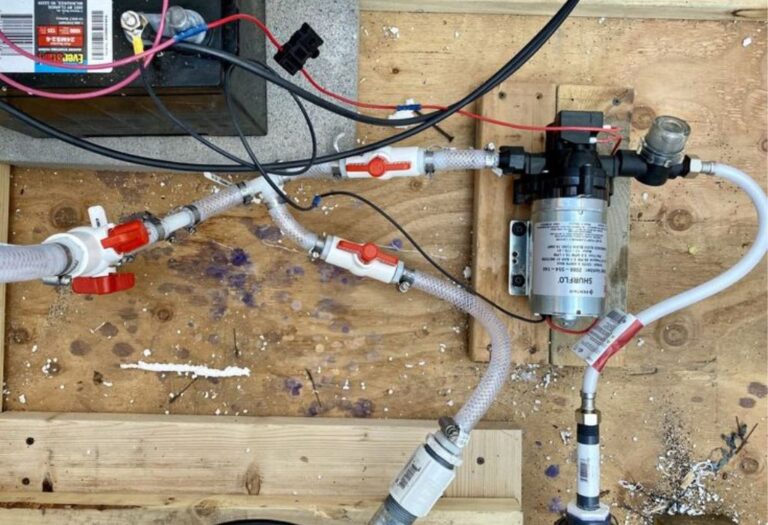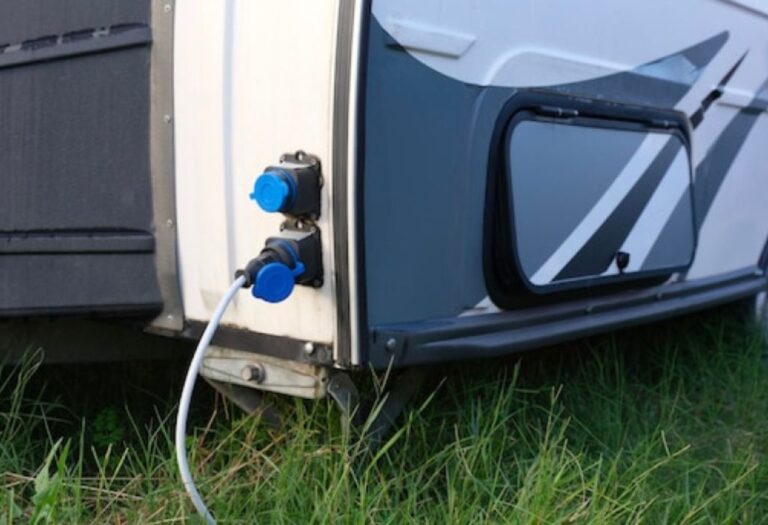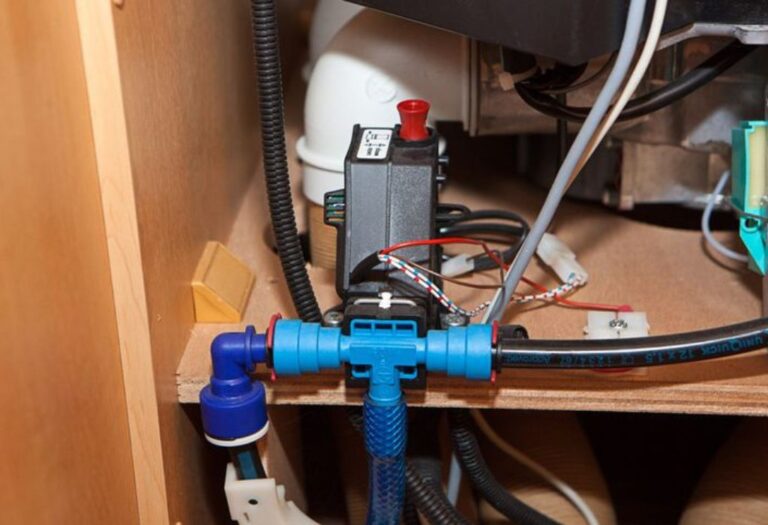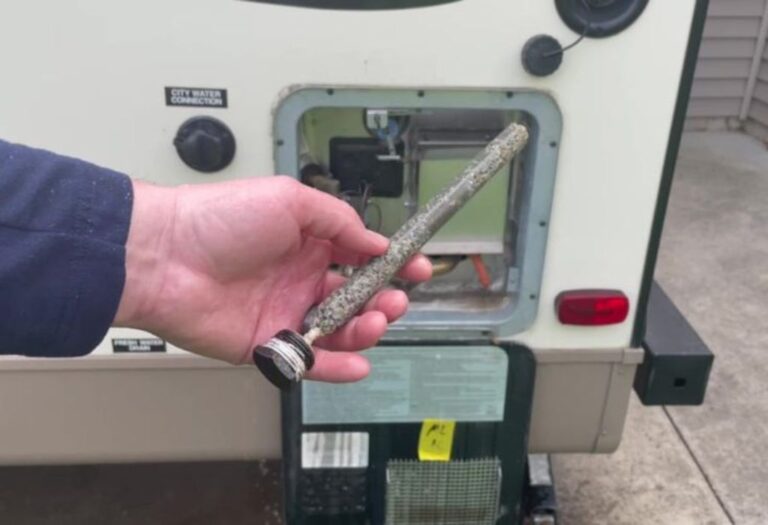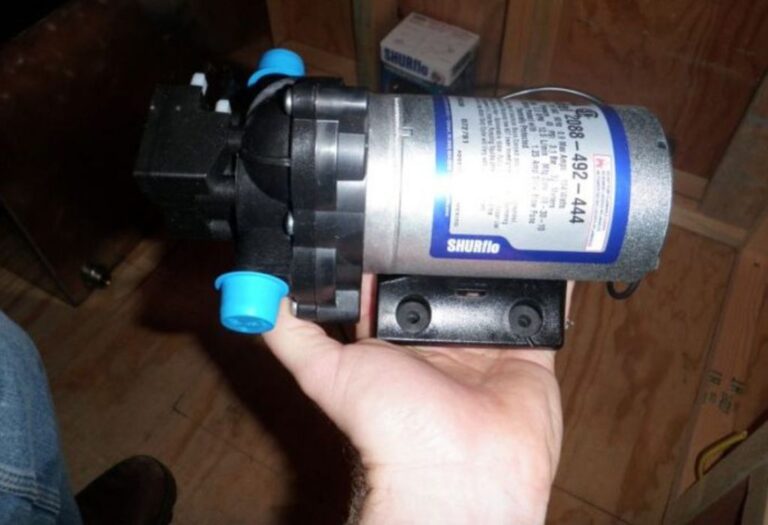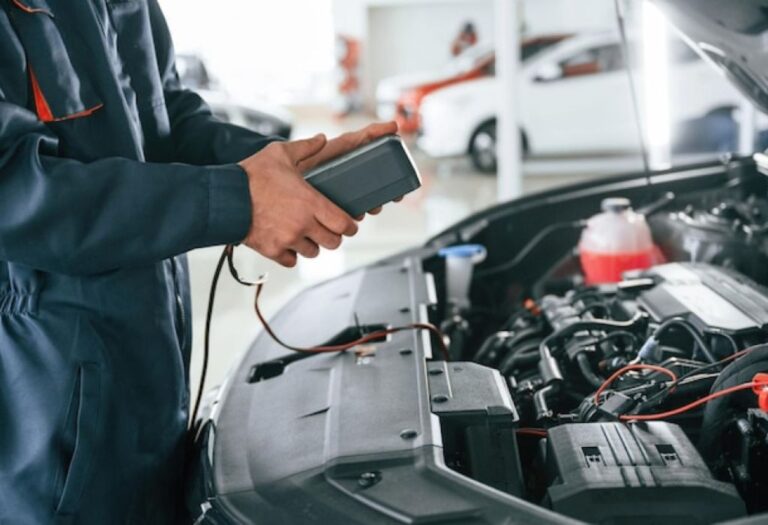Should I Disconnect My RV Battery When Plugged In? (Complete Guide)
If you own an RV, chances are you’ve asked yourself this question at some point: “Should I disconnect my RV battery when plugged in?” It’s one of the most common concerns among RVers, whether you’re a weekend camper, full-time traveler, or just storing your rig for the season.
The answer isn’t as simple as yes or no. It depends on your RV’s electrical system, the type of battery you’re using, and how you plan to use or store your RV. Disconnecting your battery at the wrong time can leave you without essential 12V systems, while keeping it connected in the wrong situation can lead to overcharging or premature battery failure.
In this complete guide, we’ll break down how RV batteries work, the pros and cons of disconnecting them while plugged in, and the best practices to extend their lifespan. By the end, you’ll know exactly what to do for your setup.
1. Understanding RV Batteries and Power Systems
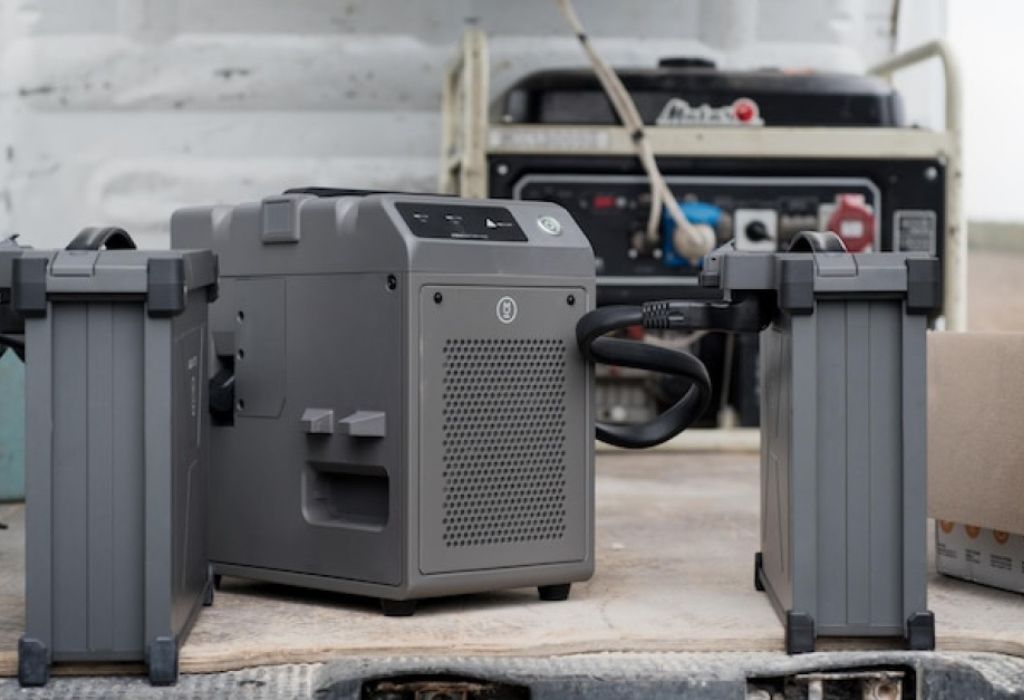
Before deciding whether to disconnect your RV battery, it’s important to understand how the system works.
- RVs usually have two types of batteries: chassis batteries (which start the engine) and house batteries (which power appliances inside the RV).
- When you plug your RV into shore power, electricity runs through a converter/charger, which powers your 12V appliances and recharges your house batteries.
- Without the house battery connected, many 12V systems may not work properly because the battery acts as a buffer and stabilizer.
- Older RVs often use simple converters that continuously push out charge, which can lead to overcharging if the battery is always connected. Modern RVs usually have smart converters or multi-stage chargers that adjust charging levels automatically.
2. What Happens When You Leave Your RV Battery Connected While Plugged In?
Keeping your battery connected while on shore power has both advantages and potential drawbacks.
- The converter continues charging the battery while also running 12V systems.
- The battery remains topped off, so you always have backup power if shore power fails.
- With modern smart chargers, there’s very little risk of overcharging.
- In older systems, however, the battery could be overcharged, which may shorten its lifespan.
3. Reasons You Might Disconnect Your RV Battery While Plugged In
There are scenarios where disconnecting the battery is a smart move.
- Preventing Overcharging – Older converters can “cook” batteries by continuously charging them. Disconnecting avoids this.
- Reducing Phantom Drains – Even when plugged in, appliances or parasitic draws may slowly discharge your battery. Disconnecting eliminates unnecessary drain.
- RV Storage – If you’re parking your RV for weeks or months without use, disconnecting prevents gradual discharge and potential damage.
- Safety During Maintenance – When working on electrical systems, disconnecting ensures there’s no accidental short circuit or shock.
4. Reasons You Should Keep Your RV Battery Connected While Plugged In
In many cases, keeping the battery connected is the better option.
- Powering Essential 12V Systems – Lights, fans, water pumps, and refrigerator control boards all need 12V power. Disconnecting the battery may disable these functions.
- Smart Chargers Protect Batteries – If your RV has a modern converter, it adjusts charging levels and prevents overcharging.
- Convenience for Full-Time RVers – If you travel often, disconnecting and reconnecting batteries becomes a hassle.
- Battery as a Surge Buffer – The battery helps stabilize voltage, protecting sensitive electronics inside the RV.
5. Risks of Disconnecting RV Batteries While Plugged In
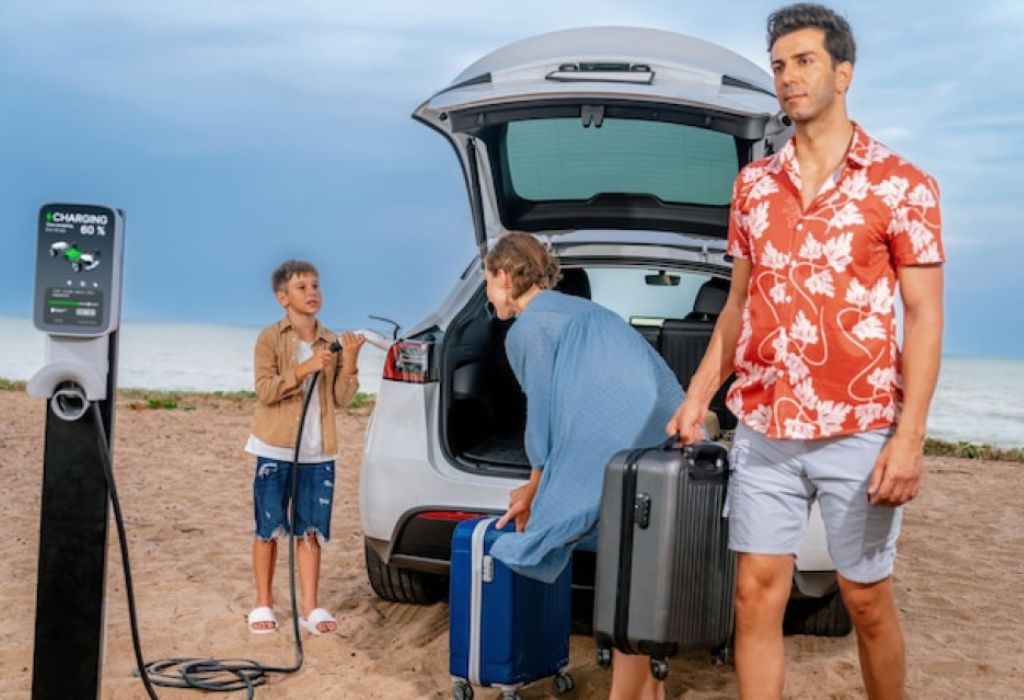
Disconnecting isn’t always safe or convenient. Here are the risks:
- Loss of all 12V systems that depend on the house battery.
- Appliances like refrigerators, propane detectors, and alarms may stop working.
- Some electronic systems lose memory settings if the battery is removed.
- The converter may become strained if forced to power 12V loads alone without a battery buffer.
6. How to Know If You Should Disconnect or Keep Connected
Here’s a simple decision-making process:
- Check Your Converter Type – If it’s an older single-stage charger, disconnecting during long-term shore power use may protect the battery. If it’s a smart charger, leave it connected.
- Identify Your Battery Type – Lithium and AGM batteries handle charging better than flooded lead-acid, which are more sensitive to overcharging.
- Consider Your Usage – If you’re storing the RV, disconnect or remove the battery. If you’re using it regularly, keep it connected.
- Follow Manufacturer Recommendations – RV and battery makers often specify the best practices for your system.
7. Best Practices for Keeping RV Batteries Healthy
No matter whether you keep your battery connected or disconnected, proper maintenance is key.
- Upgrade to a smart converter/charger if your RV has an older one.
- Regularly check and refill distilled water in flooded lead-acid batteries.
- Install a battery disconnect switch for easy control during storage.
- Use a trickle charger or solar panel to maintain battery charge when not in use.
- Clean battery terminals and check for corrosion regularly.
8. Seasonal & Long-Term Storage Tips
If you’re putting your RV away for the winter or extended periods, here’s what to do:
- Fully charge the battery before disconnecting.
- Store it in a cool, dry place away from freezing temperatures.
- Use a battery maintainer or trickle charger to prevent self-discharge.
- If leaving the battery in the RV, flip the disconnect switch to stop phantom drains.
- Check the battery every 30–60 days and recharge if necessary.
9. Common Myths About RV Batteries and Shore Power
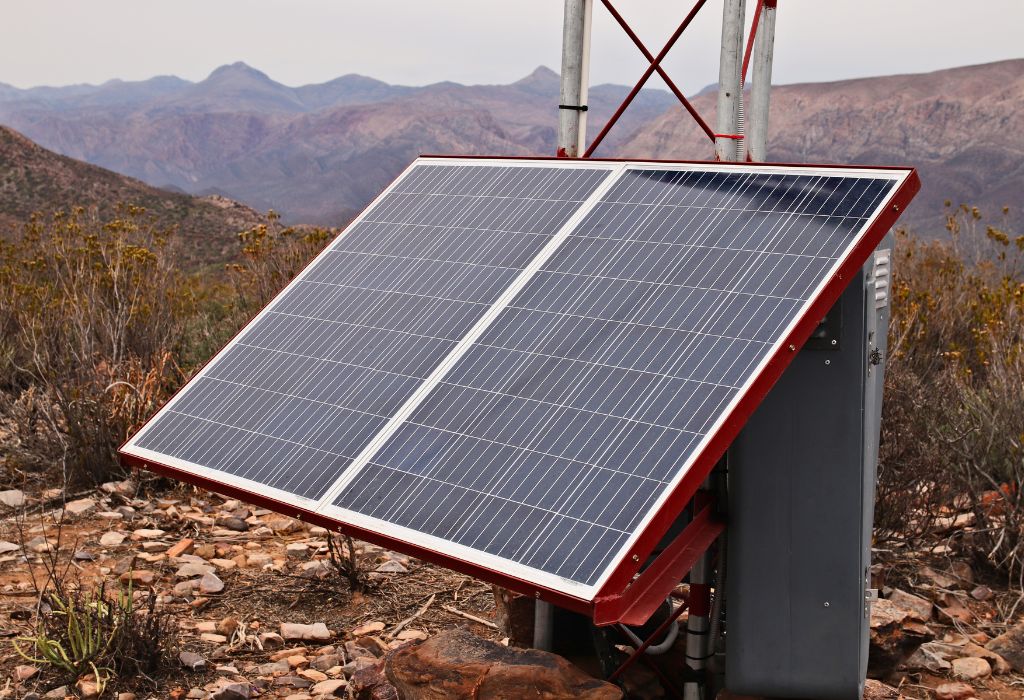
Many RV owners get conflicting advice. Let’s clear up some myths.
- Myth: Leaving batteries connected always ruins them.
Truth: With modern smart chargers, it’s perfectly safe. Problems usually happen with older chargers. - Myth: You don’t need batteries if you’re always on shore power.
Truth: Many 12V systems won’t work properly without the battery connected. - Myth: Solar panels replace the need for batteries.
Truth: Solar panels charge batteries; they don’t replace them. Batteries are still necessary. - Myth: Disconnecting is always safer.
Truth: It depends on your setup. Disconnecting may disable safety systems like propane detectors.
10. FAQs
- Will shore power charge my RV battery?
Yes, most RVs charge the battery through the converter when plugged in. - Should I disconnect my battery every time I plug in?
No, only if you have an older converter that risks overcharging. - Can I leave my RV plugged in all the time?
Yes, but use a smart charger or battery maintainer to avoid long-term damage. - Do lithium batteries need to be disconnected?
Generally no, since they handle charging much better than lead-acid. - How do I know if my converter is safe?
Look for multi-stage charging features (bulk, absorption, float). If it only outputs one constant voltage, consider upgrading.
Conclusion
So, should you disconnect your RV battery when plugged in? The answer depends on your setup.
- If your RV has a modern smart converter, it’s safe—and often better—to keep your battery connected.
- If you have an older single-stage charger, disconnecting during long-term shore power use may protect your battery.
- For storage situations, disconnecting or removing the battery is usually the best choice.
With the right approach, you can protect your battery, avoid unnecessary wear, and ensure your RV is always ready for the next adventure.
Whether you’re camping full-time, taking weekend trips, or storing your rig for winter, knowing when to disconnect your battery helps you extend its lifespan and avoid costly replacements.
I’m David R. Coleman, the founder, lead writer, and lifelong tool enthusiast behind GarageToolPro.com. With years of experience in automotive repair, woodworking, and home DIY projects, I created this platform to share practical tips, detailed tool reviews, and step-by-step guides that help mechanics, hobbyists, and homeowners get the job done right the first time.

